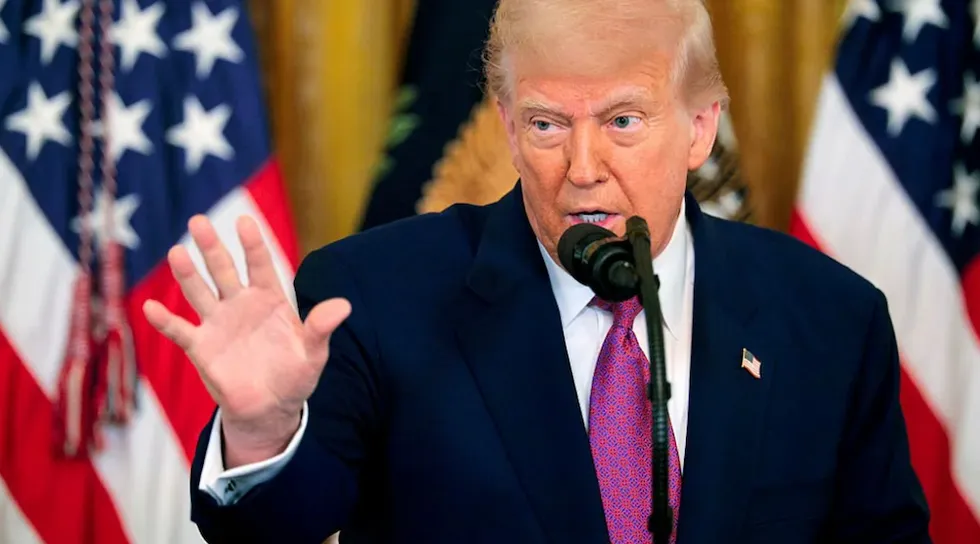
Unsplash

The left weaponizes stories of family separation to undermine immigration law, but nations must draw lines — at their borders and in their policies.
I spent the first nine months of my life separated from my mother — not because of cruelty or neglect, but because Ireland enforced its immigration laws.
My mother, a U.S. citizen in her late 20s, traveled to Ireland to visit her brother while pregnant with me. Medical complications during her pregnancy made further air travel unsafe, and she overstayed her visa. After my birth, Ireland’s immigration rules required her to leave while officials sorted out my paperwork.
A nation without enforcement invites chaos, and chaos always hurts the most vulnerable first.
As a result, I — a U.S. citizen by birth and by heritage — spent my infancy with a foster family in a foreign country.
I don’t blame Ireland for enforcing its laws. I don’t blame my mother for traveling when it was risky. Life handed us a difficult situation, but the government didn’t become the villain. That experience taught me a truth that applies directly to America’s current debate over deportation and family separation.
My story doesn’t qualify as a sob story. It’s simply the fact of the matter. For years, activists and media outlets have flooded Americans with emotional tales of children separated from their parents during deportation. The usual narrative paints Immigration and Customs Enforcement agents as soulless monsters tearing families apart for sport.
That’s nonsense.
I lived through separation. I understand the pain. But I also understand something else: Nations enforce laws not because they’re heartless, but because they must.
RELATED: One bad order could undermine Trump’s strongest issue

My mother’s visa violation led to our temporary separation. The U.S. does the same to those who violate our immigration laws. These actions don’t stem from hatred or malice. They serve the purpose of preserving order, national sovereignty, and the rule of law.
I spent my earliest months far from the woman who gave me life. I never had the chance to meet my father — he was murdered before I could know him. My mother died of cancer when I was 7. Separation and loss defined my childhood.
But I’ve never blamed the Irish government for upholding its laws. Immigration enforcement didn’t cause my father’s death. It didn’t cause my mother’s cancer. Life brings tragedy, sometimes with no one to blame.
Emotional pain doesn’t make law enforcement unjust. It makes law enforcement necessary. Countries must uphold their borders. And when they fail to do so, real people suffer — on both sides of the law.
The United States faces a historic immigration crisis.
In 2019, during President Trump’s first term, ICE arrested approximately 143,000 aliens and removed more than 267,000. In 2024, under Joe Biden, those numbers shifted: 113,431 arrests, 271,484 removals — despite over 11 million border encounters during his term. That dwarfs the roughly 3 million encounters under Trump’s entire administration.
The Department of Homeland Security also reports that 1.4 million inadmissible aliens received parole into the country’s interior. As of mid-2024, nearly 650,000 criminal illegal aliens remained on ICE’s non-detained docket — free to roam the United States.
That doesn’t seem like compassion. That’s more like collapse.
These figures signal a breakdown of accountability. And when laws go unenforced at this scale, tragedy doesn’t just grow — it multiplies.
I only had a handful of years with my mother. I understand the impulse to blame something — or someone — when that kind of pain hits. But blame rarely leads to truth. It deflects responsibility and gives emotional suffering a temporary target.
It’s a political crutch as much as a psychological one. But what if we stopped pointing fingers and started taking responsibility? Every choice brings consequences. That’s not cruelty — it’s Newton’s third law in action.
Walk into someone’s home uninvited, and that person has every right to call the police. Try to explain away the trespass, and it won’t change the fact that the law exists to protect the homeowner. If we accept that principle at the level of private property, we should respect it at the level of national borders.
My situation 30 years ago was different from what we see today. My mother, aside from a parking ticket, had no criminal history. She didn’t intend to break the law. In contrast, according to the Bureau of Justice Statistics, 44% of prosecuted illegal immigrants today already have a criminal record.
I didn’t arrive in America through human smugglers. I wasn’t trafficked. I wasn’t handed over to a fraudulent sponsor.
I came home because my grandfather — a World War II veteran and political organizer — fought for me. He used every resource he had, including connections to Sen. Ted Kennedy (D-Mass.), to bring me back to the United States. I flew across the Atlantic on the lap of a decorated American soldier, finally returning to the country that already recognized me as its own.
That’s why I can’t accept the argument that lawlessness is compassion. It isn’t.
We owe it to every child born here, raised here, or separated like I was not to replace justice with sentimentality. A nation without enforcement invites chaos, and chaos always hurts the most vulnerable first.
This debate isn’t about cruelty. It’s about sovereignty. It’s about clarity. It’s about preserving a system that works for those who follow the law — and holding accountable those who don’t.
Freda Donnelly